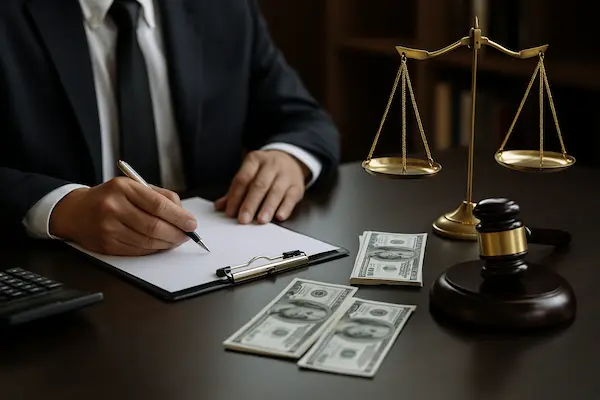
WHO CAN LEGALLY PAY A DEBT?
Contrary to popular belief, the current legal framework offers broad flexibility regarding who may make a payment. The obligation is not exclusive to the principal debtor—it can be settled by any person, regardless of whether they have a direct interest in the matter. This means a relative, business partner, or even an unrelated third party can make the payment, and it is valid whether or not the debtor is aware of it.
LEGAL LIMITATIONS ON PAYMENTS BY THIRD PARTIES
Despite this flexibility, there are specific circumstances where the creditor (the party entitled to receive the payment) may reject payment made by a third party:
- Personal obligations: If the contract involves a service that must be performed by a specific person due to their unique skills—such as a specific artist or surgeon—the creditor may insist that only that person fulfills the obligation.
- Debtor opposition: If the debtor expressly communicates their objection to third-party payments, the creditor may lawfully reject any such external payment.
LEGITIMATE RECIPIENTS AND THE APPARENT CREDITOR
Knowing who to pay is just as important as having the funds. The general rule is that payment must be made to the creditor, their legal representative, or someone authorized by law or a judge. Paying the wrong person can mean the debt is not legally extinguished.
However, Bolivian law protects good faith in legal transactions through the concept of the apparent creditor. If the debtor pays someone who, under all visible circumstances, appears to be entitled to collect the debt (e.g., someone holding the original receipt or credit documents), the debtor is released from the obligation—provided they acted in good faith. In such cases, the person who received the payment without rightful authority must reimburse the real creditor, while the debtor holds no further responsibility.
Additionally, if payment is made to an unauthorized person but the true creditor later benefits from the payment or confirms it, the obligation is also considered fulfilled.
LEGAL CAPACITY AND VALIDITY OF DEBT PAYMENTS
The validity of debt payments also depends on the legal capacity of the parties involved. The law outlines specific scenarios to protect vulnerable individuals and ensure the enforceability of transactions:
- Payment to an incapacitated creditor: Making payment directly to someone without legal capacity to receive it (such as a minor or a person declared legally incompetent) is risky. This payment does not discharge the debt unless it can be proven that the funds directly benefited the incapacitated individual.
- Payment by an incapacitated debtor: Interestingly, if a debtor lacking legal capacity pays a valid debt, they cannot later challenge the payment based on their own incapacity. The rationale is that the debt existed and had to be paid, regardless of the debtor’s temporary condition.
PAYMENTS AFTER JUDICIAL NOTIFICATION OR SEIZURE ORDERS
A critical situation arises when judicial proceedings are involved. If a debtor has been formally notified of a seizure order or judicial opposition, they are legally prohibited from paying the original creditor directly.
If the debtor disregards this judicial order and makes a direct payment, such payment is invalid. The party who requested the seizure or filed the opposition can demand payment again. The debtor, having paid improperly, must seek to recover the funds from the original creditor, but the debt will still be considered outstanding in court.
In summary, the fulfillment of obligations in the Plurinational State of Bolivia is governed by principles that facilitate payment—allowing third-party intervention—but impose strict conditions on who can receive payment and the legal context surrounding the debt. Verifying the recipient’s legitimacy and the legal status of the debt is essential to avoid the risk of having to “pay twice.” While good faith is protected, negligence regarding judicial orders or legal capacity may lead to complex legal disputes requiring detailed analysis.
Need legal guidance on fulfilling or disputing a debt obligation? Contact our law firm for specialized assistance in civil obligations and debt matters.
Frequently Asked Questions (FAQs)
Can a friend pay off my bank debt without my permission?
Yes. It is valid even without your knowledge, unless you formally notify the creditor of your objection.
I paid someone who appeared to be the collector (had documents), but they were fake. Do I still owe the debt?
No. If you paid in good faith to an apparent creditor, you are discharged from the debt. The real creditor must recover the funds from the person who collected improperly.
What happens if I pay rent to a minor?
It’s risky. Paying someone who lacks legal capacity does not discharge the debt unless you can prove the payment actually benefited the minor.
Can I pay my creditor directly after receiving a seizure notification?
No. Once notified of a seizure, any direct payment is invalid and you could be required to pay the seized amount again.
Can I cancel a payment by claiming I was legally incapacitated when I made it?
No. If the debt was valid, you cannot challenge the payment by invoking your own incapacity at the time of payment.
The content of this article does not reflect the technical opinion of Rigoberto Paredes & Associates and should not be considered a substitute for legal advice. The information presented herein corresponds to the date of publication and may be outdated at the time of reading. Rigoberto Paredes & Associates assumes no responsibility for keeping the information in this article up to date, as legal regulations may change over time.


